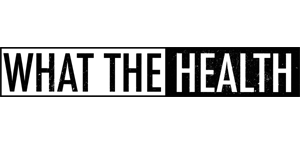As an Amazon Associate I earn from qualifying purchases.
Dr. Matthew Nagra is a Naturopathic Doctor in Vancouver, BC, and is a passionate advocate for plant-based nutrition. He is a public speaker, author, graduate of the T. Colin Campbell Center for Nutrition Studies Plant-Based Nutrition program, and volunteer for the non-profit Nutritionfacts.org.
While a plant-based diet can be incredibly nutritious, and vegans tend to consume a better balance of nutrients than non-vegetarians,(reference 1-4) there still are a few specific nutrients that may require additional care to ensure you reap all the wonderful benefits of eating plants.
Table of Contents
Vitamin B12
The first nutrient that we must discuss is vitamin B12. B12 is not made by plants or animals but is made by bacteria. To be fair, ruminant animals have B12-producing bacteria in their guts, which is why cow meat contains B12; however, 55% of all the B12 that is produced is sold to the livestock feed sector, meaning a very large amount of animals produced for food are also being supplemented (reference 5) I’d personally rather cut out the middleman and get my supplements straight from the source. Some individuals claim that because they eat organic plants without washing them, the bacteria within the soil that is left on the food provides them with enough B12 to meet their needs; however, as of now, there is not sufficient evidence to back up that claim. There are also fortified foods, such as plant milk and nutritional yeast that contain some B12, but the amounts are generally too low to warrant relying on fortified foods alone. For that reason, I believe it’s mandatory for anyone adopting an exclusively or predominantly plant-based diet to supplement B12, since the risks of deficiency are serious, including anemia, impaired cognition, nerve damage, and more (reference 6). Fortunately, it is one of the cheapest and most widely available supplements on the market, and the dosage that is recommended by Nutritionfacts.org is 50mcg daily or 2000mcg once per week of cyanocobalamin (reference 7). There is another form called methylcobalamin that is also widely available; however, it is not as shelf-stable as cyanocobalamin, and most of the research has been done on cyanocobalamin; therefore, if all you can get is methylcobalamin, you may want to take a higher dose, such as 1000mcg three to four times per week. Lastly, I should mention that there are different types of supplements including capsules, sublinguals, and injections, and I usually recommend a sublingual (dissolves under your tongue) as the preferred method (reference 8).
Vitamin D
The next nutrient that we must discuss is vitamin D. Known as the sunshine vitamin, it’s produced by the skin in response to sunlight. Interestingly enough, it’s not actually a vitamin! It would be more accurate to classify it as a hormone that helps your body absorb calcium, which is critically important for good bone health (reference 9). Vitamin D deficiency is a major cause of rickets in children, which is why it’s standard practice to place infants and children on a vitamin D3 supplement (reference 10). Since vitamin D levels largely depend on sun exposure, your individual needs for supplementing will depend on where you live and how much sun you get on your bare skin. Furthermore, it must be warm sunshine. Trying to suntan in the middle of winter on a sunny day isn’t going to help your body produce the vitamin D it needs (reference 11). For myself, living in Vancouver, I only get adequate sunshine a few months out of the year, so it’s absolutely necessary that I supplement. Standard dosage recommendations for supplementation suggest 1000IU per day for adults as sufficient; however, it may be more beneficial to supplement 2000IU per day,(reference 7) especially for those living in Northern latitudes like myself. Ultimately, the best way to know is by testing your levels with your doctor to determine what the best dose is for yourself. As a final note on vitamin D3, unless the supplement specifies that it is vegan, it is likely sourced from sheep, so as a vegan you’ll want to ensure it is stated that it is indeed vegan. Vitamin D2 is sourced from plants, but D3 is the more active form, which is why it is the preferred type.
Get your vitamin D3.
Omega-3
The third supplement to consider is an algae-based omega-3 supplement. While flaxseeds, chia seeds, and walnuts are all great sources of omega-3s, they only contain the short form known as alpha-linolenic acid (ALA), which our bodies must then convert to eicosapentanoic acid (EPA) and docosohexanoic acid (DHA). EPA is anti-inflammatory, which is great, but the one I’m most concerned about is DHA. Maintaining higher levels of DHA may actually help prevent cognitive decline as we age! (reference 12) It’s currently unclear whether or not vegans absolutely need to take a supplement since some of the research shows similar levels between vegans and nonvegetarians,(reference 13),(reference 14) but it may be a good idea since it depends largely on our individual ability to convert ALA to EPA and DHA. Furthermore, standard recommendations suggest that women supplement 200mg of DHA during pregnancy and lactation (reference 15) regardless of diet to ensure the baby’s getting all they need for the development of their nervous system. Ultimately, the best way to determine whether or not you need to supplement is by testing your blood levels, but if that’s not an option for you, you may want to take 250mg of DHA from an algae-based supplement daily as suggested by Nutritionfacts.org (reference 7). In that case, you can consider the DHA supplement as your insurance policy to ensure you are meeting your needs.
Iodine
Lastly, I do believe iodine is another nutrient that doesn’t get enough attention. Iodine is incredibly important for thyroid health, and before table salt became iodized, iodine deficiency was a more common issue (reference 16). If you are consuming some iodized salt daily, you’re likely meeting your needs, but for those of you who generally keep your salt intake low, you’ll want to get iodine from other sources. The best sources will be sea vegetables, namely dulse, nori, and wakame. Kelp, on the other hand, may contain too much iodine, which can also cause health issues if consumed regularly (reference 17). According to the National Institute of Health, adults want to get 150mcg per day (reference 18). The dosing can vary by age, and during pregnancy, the requirements go up. So if you aren’t a fan of sea vegetables and you generally keep salt intake to a minimum, you may want to consider a supplement.
Overall, a varied plant-based diet is undeniably healthful, but that doesn’t mean there aren’t additional steps you can take to ensure long-term success. I hope this article helps you determine which supplements to consider adding to your daily regimen to optimize your diet and enjoy the full range of benefits a plant-based diet has to offer.

References:
-
Turner-McGrievy, G.M. et al. Changes in Nutrient Intake and Dietary Quality among Participants with Type 2 Diabetes Following a Low-Fat Vegan Diet or a Conventional Diabetes Diet for 22 Weeks. J Am Diet Assoc. 2008;108:1636-1645.
-
Karlsen, M.C. et al. Theoretical Food and Nutrient Composition of Whole-Food Plant-Based and Vegan Diets Compared to Current Dietary Recommendations. Nutrients. 2019;11(625);1-13.
-
Parker, H.W. & Vadiveloo, M.K. Diet quality of vegetarian diets compared with nonvegetarian diets: a systematic review. Nutrition Reviews. 0(0):1-19.
-
Schupbach, R. Micronutrient status and intake in omnivores, vegetarians, and vegans in Switzerland. Eur J Nutr. 2015;56(1):283-293.
-
Moine, G. et al. Vitamins, 6. B Vitamins. Ullmann’s Encyclopedia of Industrial Chemistry. DOI:
-
Langan, R.C. & Goodbred, A.J. Vitamin B12 Deficiency: Recognition and Management. Am Fam Physician. 2017;96(6):384-389.
-
Greger, M. Optimum Nutrition Recommendations. Retrieved from https://nutritionfacts.org/2011/09/12/dr-gregers-2011-optimum-nutrition-recommendations/
-
Bensky, M.J. et al. Comparison of sublingual vs. intramuscular administration of vitamin B12 for the treatment of patients with vitamin B12 deficiency. Drug Deliv Transl Res. 2019;9(3):625-630.
-
Aloia, J.F. et al. Vitamin D supplementation increases calcium absorption without a threshold effect. Am J Clin Nutr. 2014;99(3):624-631.
-
Sahay, M. & Sahay, R. Rickets-vitamin D deficiency and dependency. Indian J Endocrinol Metab. 2012;16(2):164-176.
-
Terushkin, V. et al. Estimated equivalency of vitamin D production from natural sun exposure versus oral vitamin D supplementation across seasons at two US latitudes. J Am Acad Dermatol. 2010;62(6):929.e1-9.
-
Tan, Z.S. et al. Red blood cell w-3 fatty acid levels and markers of accelerated brain aging. Neurology. 2012;78(9):658-664.
-
Sarter, B. et al. Blood docosahexaenoic acid and eicosapentaenoic acid in vegans: Associations with age and gender and effects of an algal-derived omega-3 fatty acid supplement. Clin Nutr.
-
Welch, A.A. et al. Dietary intake and status of n-3 polyunsaturated fatty acids in a population of fish-eating and non-fish-eating meat-eaters, vegetarians, and vegans and the precursor-product ratio of a-linolenic acid to long-chain n-3 polyunsaturated fatty acids: results from the EPIC-Norfolk cohort. Am J Clin Nutr. 2010;92:1040-1051.
-
Jackson, K.H. & Harris, W.S. A Prenatal DHA Test to Help Identify Women at Increased Risk for Early Preterm Birth: A Proposal. Nutrients. 2018;10(12):1933.
-
Leung, A.M. et al. History of U.S. Iodine Fortification and Supplementation. Nutrients. 2012;4(11):1740-1746.
-
Leung, A.M. & Braverman, L.E. Consequences of excess iodine. Nat Rev Endocrinol. 2014;10(3):136-142.
-
Iodine: Fact Sheet for Health Professionals. NIH. Retrieved from https://ods.od.nih.gov/factsheets/Iodine-HealthProfessional/











